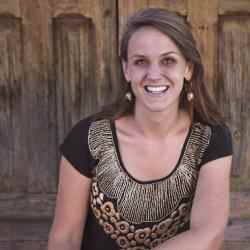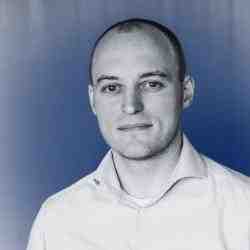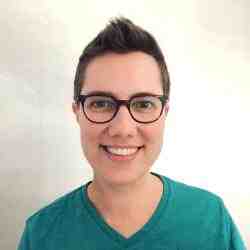Introduction
The aim of Andrea David's Salva Vita Foundation is to give the mentally disabled a chance to create new, independent lives and to assist in their social integration. Andrea helps provide them with integrative workplaces and the training programs they need to succeed in mainstream society. The foundation's broader mission is to spread the concept of "supported employment" throughout Hungary.
The New Idea
Andrea has crafted a complex program to assist the mentally disabled in their attempts to reintegrate into society and recover some measure of self-sufficiency. Andrea's program consists of six blocks: 1) special development workshops in which the mentally disabled learn the necessary life skills for professional and social integration; 2) the further development of communication skills, concentration, and self-discipline; 3) "job practice": vocational training and actual work in real work environments; 4) "supported employment": the pursuit of jobs for clients and the administration of evaluations to see that both client and customer are satisfied; 5) participation in cultural events, visiting theaters, opera, etc.; 6) The Workers' Club, a club of disabled professionals who organize cultural events. Together, these programs not only prepare the disabled for work in the "real world," but also encourage and counsel employers to accept the disabled: Salva Vita provides the opportunity for disabled employees to build personal relationships of trust and mutual respect with their employers. In this way, Salva Vita challenges mainstream society to better understand and accept the mentally disabled.
While the past few years have yielded increasing public awareness of disabilities in Hungary, the mentally disabled have been ignored and even willfully excluded from disability partnerships. The mentally disabled are still widely viewed as fundamentally sick, dangerous people-even by certain members of the broader community of the disabled. There is currently no disability movement in Hungary that will cooperate with the mentally disabled. In this sense, Andrea is exploring entirely new ground.
The Problem
The isolation of marginalized groups such as minorities and the disabled is a well-known legacy of the Communist era. For the past 40 years, mentally and physically handicapped people were removed from society physically, psychologically, and socially. They were "cared" for in institutions run either by the state or by the church, but these institutions were deliberately located outside of urban centers (so the inhabitants were not visible to mainstream society), and provided no kind of vocational or educational training that would prepare lodgers for re-integration in society. Within the confines of these institutions, the disabled were mixed indiscriminately-the mentally with the physically disabled, the blind with the blind-deaf, children with adults. The object was clearly not to heal and train but to isolate and exclude the disabled categorically.
Since 1989, with the disintegration of these isolating institutions, the disabled have begun to emerge into society. After finishing special schools, disabled young people now have to leave institutions and integrate into society without any help or support. Most of these people have spent the majority of their lives in state-supported institutions-as dependents-and do not have any models to help them prepare for the "external world." They lived only in a teacher-student context, and have always been treated as children. For them as for employers throughout Hungary, the prospect of working in normal workplaces which would ensure self-sufficiency seems impossible. Their concentration and ability to work was never developed and work discipline was never taught. Other employees are afraid of them, thinking they may be violent or cause accidents.
The state has taken some steps towards improving the situation: one initiative involves a law for the "Assurance of the Rights and Equality of Opportunities for Disabled People." This law mandates that all companies and institutions with 20 or more employees must employ the disabled. The number of disabled workers must constitute five percent of healthy employees. Yet businesses will consistently pay fines rather than submit to this law, and they remain unaware of state resources available to help them refashion their workplaces to accommodate the disabled. The money from the fines goes into a fund available for businesses who do comply with disability regulations, and yet most businesses are unaware of the fund's existence.
The mentally and multiply disabled have to overcome even more obstacles than the physically disabled, the blind, or the deaf. They do not have an effective defense movement, and the parents' associations are tired. They suffer discrimination not only from the "healthy" parts of society, but also from other disabled. When the National Disability Movement convenes meetings, attendance is deeply skewed: on average, 90 percent of the participants represent the physically disabled or their organizations, six percent represent the blind, four percent the deaf and only one or two percent fight for mentally handicapped people. This exclusion exacerbates a larger problem: the disabled should unite to win political influence, but these "class distinctions" within disabled communities prevent the consolidation of a strong interest group. The mentally disabled thus have no systematic political agenda and remain without political influence.
The Strategy
Andrea's multi-faceted program innovates in two principal areas. The first is the "job exercise" program, which includes an integrated coaching program. This initiative has been running since September 1996 and has been an enormous success. Its central tenet is that young people with disabilities should gradually get to know and learn the rules and requirements of real work environments. It is only in real job placements that a true assessment can be made of individual work skills and confidence levels. Through this program, Andrea makes her clients aware of their opportunities, teaches work discipline, and generally develops their ability to work. After two years of participation in Andrea's program, individuals are able to do high-quality work for four hours at the required intensity.
This same program also prepares the disabled to handle employee-employer relationships. Pupils work one day per week with the aid of a job coach and spend the rest of the week in their usual schools. They work for two months in one place, then change to another. They thus become acquainted with eight different types of work and work places over two years. They also gain exposure to real employers who are able to witness their productive capacities. Usually, the employers agree to hiring a disabled person who works only once a week in a part-time job. But this is only the beginning: Andrea follows up by informing the employer of opportunities for receiving state support, and in some cases even secures state support for the employer herself. As long as she encounters resistance, she continues to counsel employers as to the advantages of employing the disabled. All of these efforts encourage the employer to become more open to the employment and general acceptance of the mentally disabled.
Andrea cooperates with four schools in this program. Last year she worked with 18 clients who were placed in nine different workplaces. Today, the total number of participants has increased to 40 and they work in twelve different fields. They all have part-time jobs. Andrea's is the only program in Hungary which prepares the mentally disabled for work and life outside of institutions.
The second central element to her project is the "Supported Employment program." This is perhaps the most important element of the project, and it is unique not only to Hungary but to Central Europe as a whole. Andrea began this alone in October 1998, and has since recruited the help of two social workers who have assisted in its expansion. This is an actual job placement program, preceded by an assessment of the disabled person, job analysis, job development, and job coaching. The program has successfully placed many individuals in jobs-inputting data, cleaning offices, working in warehouses, sorting mail, working with document courier services, helping in homes for the elderly, etc. The program began with eight mentally challenged students, and is expanding continually. Andrea and her staff go personally to potential job givers to present the program with written materials. More and more businesses are accepting her offer because many Hungarians will not work for the minimum wage or at tedious jobs that are tailor-made for her graduates.
The program consists of five stages: 1) The foundation develops a network of clients, many of whom come to them because of the foundation's growing renown; 2) Andrea and her colleagues analyze the client and his or her environment. With a detailed questionnaire, Andrea and her colleagues evaluate the client's skills and interests. They visit the family and the institutions and schools that have taken care of the client to get a realistic picture of the client and their problems; 3) the foundation searches for the right workplace, or they create one if possible. Workplaces are found through state work centers, private job offices, or even through Andrea's friends; 4) Andrea assures background support for the employee and employer; 5) The foundation provides a coach to teach the client and the employer some of the essentials. The client is taught to get to and from work, the employer to recognize and handle some of the more common difficulties that are characteristic of people with mental disabilities. During the first few days, the coach stays with the disabled person, but gradually decreases the amount of time spent together until the disabled employee is self-sufficient in his or her work environment.
The foundation follows the disabled person's life afterwards, and continues to support him or her. Some clients are visited every week, others every two weeks or once a month. If they desire another kind of job in another workplace, the foundation helps them organize another job search. In other facets of her project, Andrea offers resources for the mentally disabled before and after employment, and helps them come together to form communities for leisure and political activism alike. Andrea's first client has been working for three years now in the same workplace.
The larger aim of Andrea's work is to prove to state leaders that it is much cheaper (not to mention more humane) to create supported workplaces than to consign the disabled to institutions for their whole lives. To this end, she has amassed very detailed documentation of her foundation's work, and is constantly pressuring public officials for recognition. She has fought for the official recognition of her program as alternative employment for the disabled, and has succeeded in changing the state's system of categories, under which the mentally disabled were not even considered unemployed-they were unemployable and their isolation was therefore not even on the horizon of statistically measurable social ills. Thanks to Andrea's persistent advocacy, the mentally disabled are now considered "employable unemployed." Andrea has published a 100-page book detailing her program's methodology, which is distributed to workers in state institutions. Many of these institutions have joined her program and are employing her methods.
The Person
Andrea David worked as an agricultural scientist in a social work institute with approximately 120 mentally disabled adults. She coordinated agricultural work through which organic foods were grown for the sick and people suffering from cancer. After getting to know the mentally disabled intimately-after coming to understand their problems with employment and social acceptance-she fell in love with them. She felt that it was her responsibility to help them and so she founded the Salva Vita Foundation in 1993. Andrea is a mother of three.




